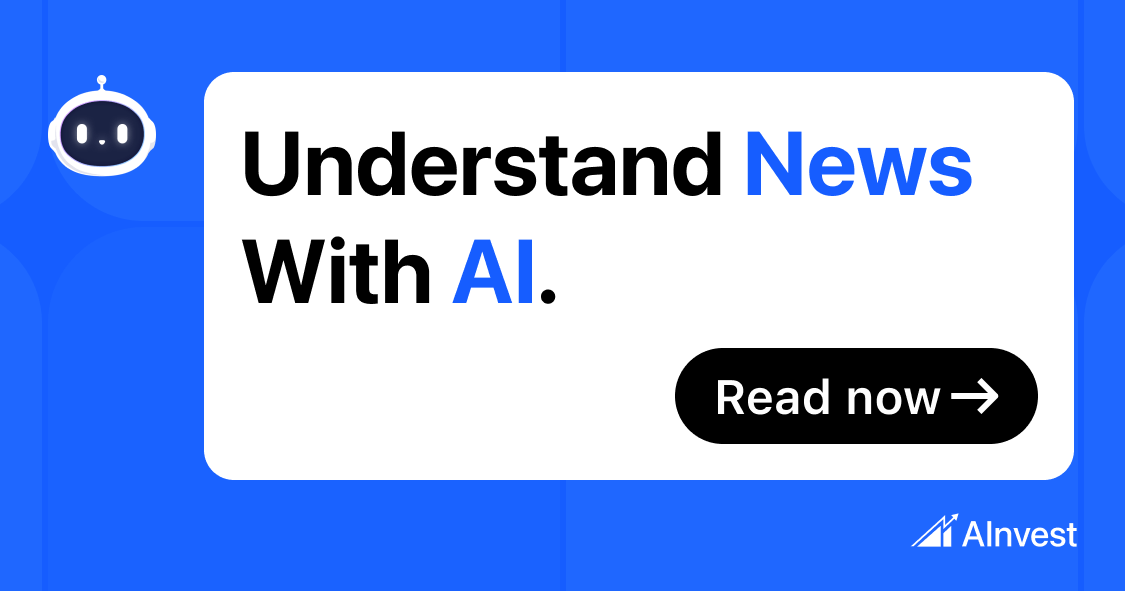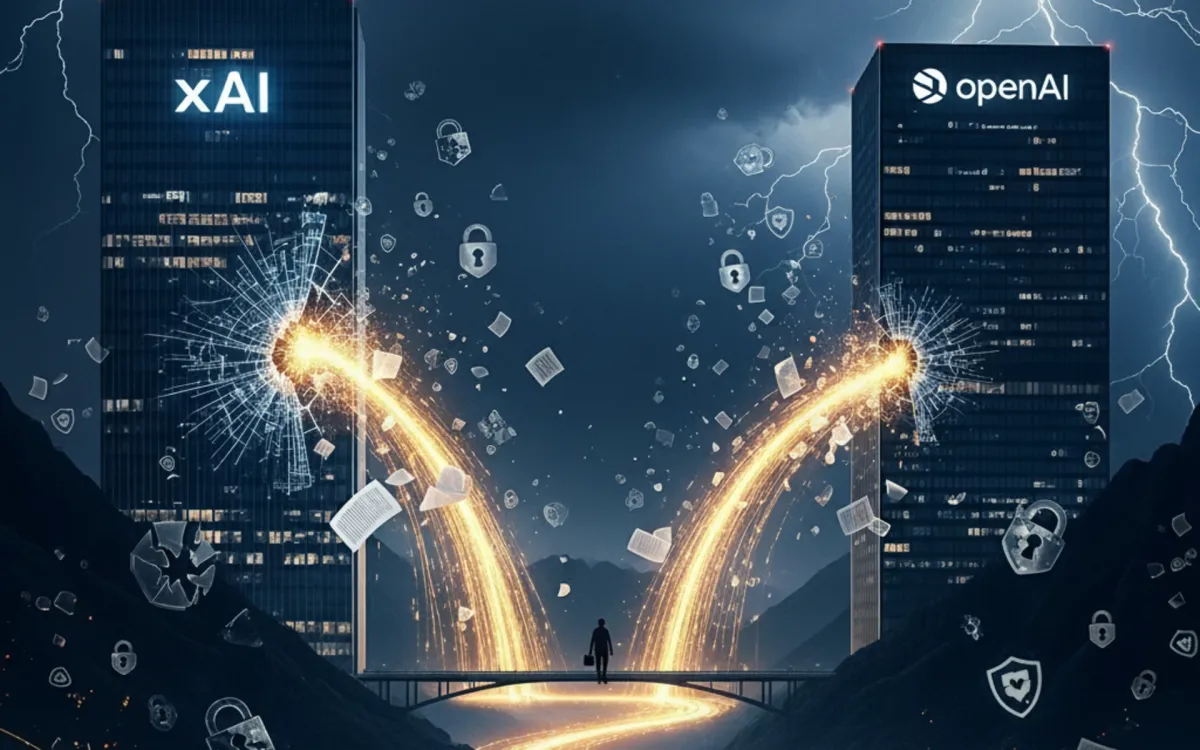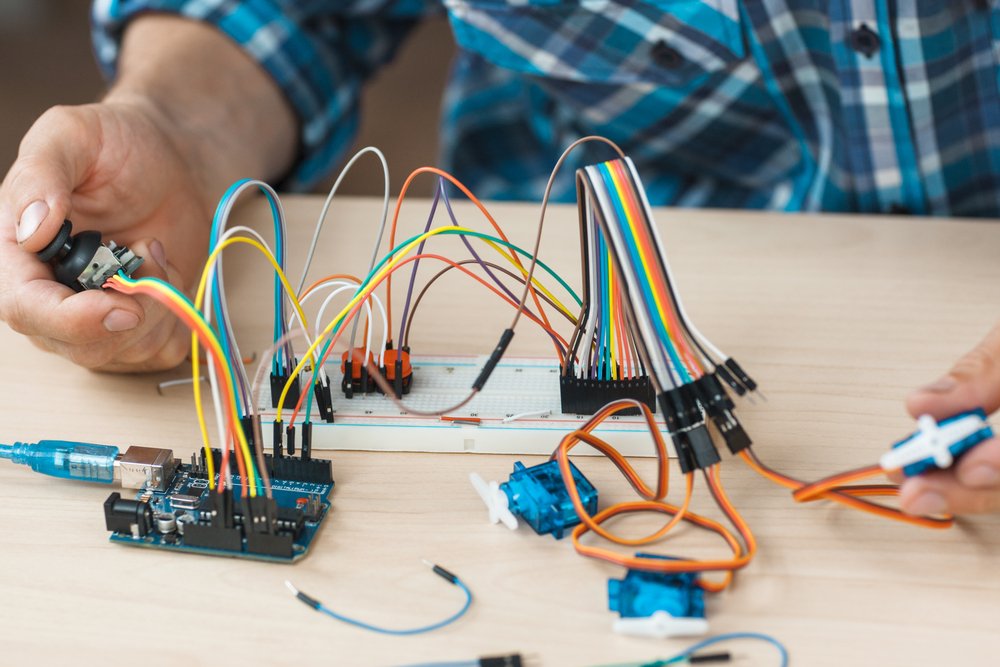Tools & Platforms
The Week That Google Ate Adobe

In 2011, venture capitalist Marc Andreessen wrote, “Software is eating the world.”
He predicted software would take over large swaths of the economy, and that’s exactly what happened. Books became software, and Amazon beat Barnes & Noble. Movies became software, and Netflix won. Music became software, and Spotify rules over labels.
Now, we’ve entered a new era in which some software companies could be eaten by AI. This technology makes it easier to use and create new software, challenging established SaaS providers and upending business models.
New AI versions of software are popping up in a multitude of sectors, such as legal services, graphic design, marketing, HR, and healthcare. What used to be a discrete software product may now be just a series of requests in plain English typed into a chatbot or AI model. AI coding tools are even making it easier for people to create their own software, rather than buy it.
‘Zero terminal value’
This has profound implications for the software industry and the millions of employees who use and rely on this widespread technology. Wall Street has taken note, with shares of some established software vendors falling dramatically in recent months.
These AI software jitters reached such intensity that RBC analysts had to publish a big research note on Monday telling investors to calm down. They stressed that core systems of record, such as enterprise resource planning software, are likely not at risk. Still, their findings were not that reassuring.
“Incumbents have to be more careful about relying on incumbency as a default advantage and not take potential AI disruption lightly, especially with greater feature commoditization, moat erosion, and margin pressure on the horizon,” the RBC analysts wrote.
A day later, these same RBC analysts warned that a “zero terminal value” narrative has crept into HubSpot‘s stock, with some investors questioning whether generative AI could displace elements of the software company’s inbound marketing model. HubSpot stock is down about 35% this year. Similar concerns have plagued other SaaS companies, such as Salesforce, which has shed roughly 25% in 2025.
Adobe and graphic designers
Another software provider under AI pressure is Adobe. This company was initially thought to be an AI winner, but its stock is down about 20% this year. I think it’s the perfect example of how generative AI is beginning to undermine software business models and disrupt related jobs.
Inside Adobe, some employees have worried about the potential for AI to reduce the need for graphic designers, who are key customers for the company’s image editing and creation software such as Photoshop and Illustrator.
Business Insider’s Eugene Kim wrote exclusively about this in the summer of 2023. Kim quoted a senior designer at Adobe who warned internally that a business he knew planned to reduce the size of its graphic design team because of new AI text-to-image features. “Is this what we want?” he asked colleagues.
Adobe has said it has a history of introducing new technology that leads to more productivity and jobs. Still, this issue has come up on earnings calls, with analysts asking whether easier and cheaper AI image tools could reduce demand for Adobe’s software.
As this AI technology becomes more potent, and easier to use for more people, it might reduce demand for the skills of professional graphic designers. AI systems could eliminate 300 million jobs worldwide, including a quarter of those in the arts and design industries, Goldman Sachs has estimated.
Google’s banana
Enter Google. This week, the internet giant released a new AI photo-editing tool and baked it into its Gemini chatbot service. The early version of this tool was called Nano Banana, and I wished they’d kept the name. Oh well.
Users of the free version of Gemini now get almost 100 images a day to either edit or create, using simple natural language requests. There’s also a paid version of the Gemini chatbot that costs $20 a month. This includes up to 1,000 images per day, and offers a host of other features that compete pretty well with ChatGPT.
Compare that to Adobe’s Photoshop. This is a little harder to use and usually requires some training to become proficient. It costs about $23 a month for individuals and offers very few of the extra AI bells and whistles that Gemini has.
I tried this new Gemini image-editing tool with Business Insider’s Hugh Langley. It was fast, easy to use, and free. Why would you pay $23 a month for Photoshop when Google offers similar capabilities, either for free or for less money?
Adobe says it’s integrating AI across its software suite and letting creators seamlessly move work between its apps. Yet on the same day Gemini was upgraded, Adobe adopted Google’s new AI image model to power some of its own tools — hardly a show of in-house strength.
No surprise: Adobe stock fell on Tuesday when Google’s launch went live. The shares have lost at least 30% in the past five years, leaving the company worth about $150 billion. Google’s market capitalization is $2.5 trillion.
Sign up for BI’s Tech Memo newsletter here. Reach out to me via email at abarr@businessinsider.com.
Tools & Platforms
Is It a High-Conviction Buy Amid AI Infrastructure Growth and Energy Constraints?

The AI infrastructure boom has created a seismic shift in the tech landscape, with data centers demanding unprecedented speed, scalability, and energy efficiency. Credo Technology (CRDO) has emerged as a pivotal player in this transformation, leveraging its high-speed connectivity solutions to address the dual challenges of performance and power consumption. However, as the sector grapples with energy bottlenecks and intensifying competition, investors must weigh CRDO’s strategic advantages against its macro risks.
Financial Strength and Strategic Innovation
Credo’s fiscal 2025 results underscore its rapid ascent: revenue surged to $436.77 million, a 126.34% year-over-year increase, while net income jumped 283.94% to $52.18 million [3]. This growth is fueled by demand for its Active Electrical Cables (AECs) and optical digital signal processors (DSPs), which offer 50% lower power consumption and 100x greater reliability than traditional optical solutions [1]. The company’s gross margin of 64.77% and a cash balance of $236.33 million further highlight its financial discipline [3].
Credo’s system-level strategy—integrating SerDes IP, Retimer ICs, and the PILOT software platform—enables faster time-to-market and system-level optimization for hyperscalers [1]. Innovations like the 112G PAM4 SerDes IP and 3nm 200G-per-lane optical DSPs position it to capitalize on the industry’s shift to 200G lane speeds [3]. Analysts project revenue exceeding $800 million in 2026, with a non-GAAP net margin approaching 40% [1].
Competitive Edge in a High-Stakes Market
The AI infrastructure market is projected to grow at a 17.71% CAGR through 2030, driven by energy-efficient cooling, AI-specific networking, and government subsidies [4]. Credo’s focus on low-power, high-bandwidth interconnects aligns with this trajectory. Its AECs, which dominate hyperscaler demand, have driven double-digit sequential growth, while its 3nm optical DSP supports port speeds up to 1.6 Tbps [1].
However, competitors like Broadcom and Marvell are also advancing optical connectivity and custom silicon solutions [2]. Credo’s pure-play focus on high-speed connectivity and proprietary technologies, such as the PILOT platform, provides differentiation. Its 33.4% R&D investment ratio reinforces innovation cycles, a critical edge in a capital-intensive industry [3].
Navigating Energy Constraints and Macro Risks
AI data centers face existential energy challenges. Grid capacity constraints, with 72% of respondents in a Deloitte 2025 survey citing it as a “very challenging” issue, threaten to delay 20% of planned projects [1]. Credo’s energy-efficient solutions mitigate this risk, but the broader industry’s reliance on fossil fuels to meet AI’s power demands raises sustainability concerns [6].
Customer concentration remains a vulnerability: Microsoft accounted for 86% of Q3 2025 revenue [5]. While Credo is diversifying into new hyperscaler relationships and the PCIe retimers market, overreliance on a few clients could destabilize growth. Additionally, its forward 12-month Price/Sales ratio of 26.02, well above the sector average of 8.83, suggests valuation risks [5].
Analyst Outlook and Strategic Resilience
Despite these risks, analysts remain bullish. Mizuho raised its price target to $135, citing Credo’s leadership in AI infrastructure, while Stifel set a $115 target [2]. TD Cowen labeled CRDO its “Best Smidcap Idea for 2025,” emphasizing its role in hyperscaler AI adoption [5]. Post-patent settlement, Credo’s legal risks have diminished, opening avenues for licensing revenue [5].
Conclusion: A High-Conviction Buy?
Credo’s strategic positioning in the AI infrastructure boom is compelling. Its energy-efficient solutions, robust financials, and system-level innovation address critical industry pain points. Yet, energy bottlenecks, competitive pressures, and valuation concerns demand caution. For investors with a long-term horizon and a tolerance for volatility, CRDO’s projected 85%+ revenue growth and strong balance sheet justify a high-conviction buy, provided diversification and sustainability risks are monitored.
Source:
[1] Credo Technology and the AI Infrastructure Boom [https://www.ainvest.com/news/credo-technology-ai-infrastructure-boom-strategic-play-data-center-revolution-2508/]
[2] How Does Credo’s System-Level Strategy Provide an Edge in the AI Era [https://www.nasdaq.com/articles/how-does-credos-system-level-strategy-provide-edge-ai-era]
[3] Credo Technology Group Holding Ltd (CRDO) Financial & [https://www.monexa.ai/blog/credo-technology-group-holding-ltd-crdo-financial–CRDO-2025-08-06]
[4] AI Infrastructure Market Statistics: Size, Growth, & Trends [https://thenetworkinstallers.com/blog/ai-infrastructure-market-statistics/]
[5] Credo Technology (CRDO): AI Growth, Risks, and Market Outlook [https://www.monexa.ai/blog/credo-technology-crdo-ai-growth-risks-and-market-o-CRDO-2025-03-06]
[6] The growing environmental impact of AI data centers’ energy demands [https://www.pbs.org/newshour/show/the-growing-environmental-impact-of-ai-data-centers-energy-demands]
Tools & Platforms
xAI sues former engineer for allegedly stealing ChatGPT-beating technology

Elon Musk’s artificial intelligence company xAI filed a federal lawsuit on August 28, 2025, against former engineer Xuechen Li, alleging theft of confidential information containing “cutting-edge AI technologies with features superior to those offered by ChatGPT.” The 29-page complaint filed in the Northern District of California seeks damages and emergency injunctive relief to prevent Li from working at OpenAI while the case proceeds through court.
Li, who joined xAI in February 2024 as one of approximately 20 initial engineers, had “access to and responsibility for components across the entirety of xAI’s technology stack,” according to court documents. The complaint alleges Li uploaded proprietary data to personal storage systems on July 25, 2025, three days before resigning to accept a position at OpenAI with an August 19 start date.
Subscribe PPC Land newsletter ✉️ for similar stories like this one. Receive the news every day in your inbox. Free of ads. 10 USD per year.
The timing proves particularly damaging for xAI’s case. Li sold approximately $7 million in company stock through two transactions facilitated by xAI itself – receiving $4.7 million on July 23 and $2.2 million on July 25, the same day he allegedly copied confidential files. Court filings reveal that xAI facilitated the second transaction “because xAI valued his contributions, and wanted to retain him as a productive and successful employee.”
Li’s alleged misconduct emerged during routine security reviews after he departed the company. According to the complaint, Li “admitted in a handwritten document he provided to xAI that he misappropriated xAI’s Confidential Information and trade secrets.” The admission occurred during meetings at Winston & Strawn’s offices in Redwood City on August 14 and 15, 2025, with his criminal defense attorney present.
The legal documents detail Li’s efforts to conceal his activities. He “deleted his browser history and system logs, renamed files, and compressed files prior to uploading them to his Personal System,” according to the complaint. Li also changed critical account passwords on August 11, 2025, after receiving xAI’s demand letter, then claimed he could not “remember” the new credentials during subsequent negotiations.
The lawsuit emerges amid intense competition for AI talent between major technology companies. Recent litigation trends highlight escalating disputes over intellectual property and market control in the artificial intelligence sector. The case follows multiple high-profile legal battles involving AI companies and content creators over training data usage and copyright protection.
xAI’s complaint emphasizes the extraordinary financial investment required for AI development. The company states that “advanced AI models can cost greater than hundreds of millions of dollars to develop,” with xAI investing billions in its intellectual property development. The lawsuit notes that “maintaining the utmost secrecy in the development of AI models is of critical importance” given the competitive landscape.
The stolen information allegedly relates to Grok, xAI’s conversational AI system launched in November 2023. Court documents describe Grok 4 as “one of the most, if not the most, advanced and powerful generative AI systems in the world, leading industry benchmarks in reasoning and pretraining capabilities.” The technology enables natural language processing, image generation, and audio response capabilities.
Market dynamics underscore the lawsuit’s significance for the AI industry. According to xAI’s filings, “experts predict that the market value of AI technology will exceed hundreds of billions of dollars this year, and over a trillion dollars by decade’s end.” The complaint notes that OpenAI currently controls “over 80 percent of the generative AI chatbot market” after ChatGPT’s November 2022 launch sparked widespread adoption.
Li signed comprehensive confidentiality agreements upon joining xAI, including an Employee Confidential Information and Invention Assignment Agreement defining protected information. The agreement covers “trade secrets, proprietary technology, inventions, mask works, ideas, processes, formulas, software in source or object code, data, programs” and other technical materials.
Additionally, Li executed a Termination Certificate on August 1, 2025, falsely representing compliance with confidentiality obligations. The document required him to certify returning all company materials and deleting any confidential information from personal systems. Court filings reveal these representations were “knowingly false” as Li retained xAI’s proprietary data.
The case highlights broader tensions within the AI industry over employee mobility and trade secret protection. xAI’s complaint argues the stolen secrets “could save OpenAI and other competitors billions in R&D dollars and years of engineering effort, handing any competitor a potential overwhelming edge in the race to dominate the AI landscape.”
xAI implemented extensive security measures to protect its intellectual property, including SOC 2 Type II compliance, NIST 800-171 Rev.3 framework adoption, security awareness training, background checks, and endpoint encryption. The company maintains dedicated information security teams and conducts regular assessments to protect confidential materials.
Buy ads on PPC Land. PPC Land has standard and native ad formats via major DSPs and ad platforms like Google Ads. Via an auction CPM, you can reach industry professionals.
The lawsuit seeks temporary restraining orders requiring Li to surrender personal devices for forensic examination and preventing his employment at OpenAI until all confidential information is deleted. xAI also requests permanent injunctions against disclosure or use of its trade secrets, plus monetary damages, attorneys’ fees, and punitive damages.
Legal experts note the case’s potential impact on AI industry employment practices. The lawsuit challenges common talent mobility patterns while testing courts’ willingness to restrict employee movement between competing AI companies. The outcome could establish precedents for protecting proprietary AI technologies through contractual and legal mechanisms.
Li’s case follows recent AI-related litigation trends, including privacy disputes over meeting recording technologies and regulatory challenges to content moderation requirements. Courts increasingly confront complex questions about AI development, intellectual property protection, and competitive practices within rapidly evolving technology markets.
The Northern District of California court will determine whether xAI’s emergency relief requests merit temporary restrictions on Li’s employment while the underlying trade secret claims proceed to trial. The case represents one of the most significant AI trade secret disputes to emerge from Silicon Valley’s competitive talent marketplace.
Subscribe PPC Land newsletter ✉️ for similar stories like this one. Receive the news every day in your inbox. Free of ads. 10 USD per year.
Timeline
- February 26, 2024: Xuechen Li begins employment at xAI as Member of Technical Team, signing confidentiality agreement
- June 2025: Li sells $4.7 million in xAI stock through company-facilitated transaction
- July 23, 2025: Li receives cash proceeds from first stock sale ($4.7 million)
- July 25, 2025: Li receives additional $2.2 million from second stock sale and allegedly uploads confidential xAI data to personal systems
- July 28, 2025: Li suddenly resigns from xAI, having already accepted position at OpenAI
- August 1, 2025: Li signs false Termination Certificate claiming compliance with confidentiality obligations
- August 11, 2025: xAI discovers Li’s data theft during routine security review and sends demand letter; Li changes critical account passwords
- August 14-15, 2025: Li admits to theft in meetings with criminal defense attorney present at Winston & Strawn offices
- August 18, 2025: Li signs Authorization agreement but provides incomplete account access information
- August 19, 2025: Li’s scheduled start date at OpenAI
- August 28, 2025: xAI files federal lawsuit in Northern District of California
- August 29, 2025: Musk’s xAI files additional antitrust lawsuit against OpenAI and Apple
Subscribe PPC Land newsletter ✉️ for similar stories like this one. Receive the news every day in your inbox. Free of ads. 10 USD per year.
Summary
Who: xAI Corp. and X.AI LLC filed lawsuit against former engineer Xuechen Li, a Chinese national and Stanford PhD who worked as one of xAI’s first 20 engineers.
What: Federal lawsuit alleging trade secret theft, breach of contract, fraud, and computer access violations. xAI claims Li stole “cutting-edge AI technologies with features superior to those offered by ChatGPT” and seeks injunctive relief to prevent his employment at OpenAI.
When: Lawsuit filed August 28, 2025, following alleged data theft on July 25, 2025, and Li’s resignation on July 28, 2025. Critical events occurred between Li’s stock sales in June-July 2025 and his planned August 19 start date at OpenAI.
Where: Case filed in US District Court for Northern District of California (Case No. 3:25-cv-07292). Li worked at xAI’s Palo Alto headquarters and resides in Mountain View, California.
Why: xAI argues Li’s theft threatens its competitive position in the AI market worth hundreds of billions annually. The stolen technology could save competitors “billions in R&D dollars and years of engineering effort,” potentially undermining xAI’s market expansion strategy and product development roadmap.
PPC Land explains
xAI: Elon Musk’s artificial intelligence company founded in 2023, developing the Grok conversational AI system. The Nevada-based corporation operates from Palo Alto, California, and positions itself as a competitor to OpenAI’s ChatGPT with claims of superior reasoning capabilities. According to court documents, xAI has invested billions in developing its proprietary AI technology and achieved significant market recognition within two years of operation.
Trade Secrets: Confidential business information that derives economic value from not being generally known to competitors. In AI development, trade secrets encompass model weights, training methodologies, system prompts, algorithmic improvements, and technical know-how. The lawsuit emphasizes that trade secrets protect “nearly all of xAI’s developments” including cutting-edge technologies with features allegedly superior to competing products like ChatGPT.
OpenAI: The artificial intelligence research company behind ChatGPT, currently controlling over 80 percent of the generative AI chatbot market according to court filings. Founded as a research organization, OpenAI has evolved into a commercial entity offering AI services through its GPT models. The company represents Li’s new employer and xAI’s primary competitor in the conversational AI marketplace.
Confidential Information: Legally protected proprietary data covered under employment agreements, including technical specifications, business strategies, financial data, and developmental processes. Court documents define this broadly as “any and all confidential knowledge, data or information” that competitors could use for competitive advantage. Li’s confidentiality agreement specifically covered inventions, software code, and non-public information relating to xAI’s operations.
Grok: xAI’s flagship conversational AI system launched in November 2023, described in court documents as “one of the most advanced and powerful generative AI systems in the world.” The technology performs natural language processing, image generation, and audio response functions. The latest version, Grok 4, allegedly leads industry benchmarks in reasoning and pretraining capabilities, representing billions in development investment.
Misappropriation: The unauthorized acquisition, disclosure, or use of trade secrets by someone with access to confidential information. Federal law defines this as obtaining trade secrets through improper means including theft, misrepresentation, and breach of confidentiality duties. The lawsuit alleges Li misappropriated xAI’s proprietary technology by copying files to personal systems without authorization, then concealing his actions through technical cover-up methods.
Artificial Intelligence: Computer systems designed to perform tasks typically requiring human intelligence, including learning, reasoning, and problem-solving. The lawsuit emphasizes AI’s transformative impact, noting that generative AI adoption occurred faster than personal computers or internet adoption. Market projections estimate AI technology value exceeding hundreds of billions in 2025, reaching over one trillion dollars by decade’s end.
ChatGPT: OpenAI’s conversational AI chatbot launched in November 2022, powered by generative pre-trained transformer models including GPT-3.5, GPT-4, and GPT-o3. The service marked widespread public access to conversational AI tools and achieved rapid market dominance. Court documents position ChatGPT as the primary competitive benchmark against which xAI measures Grok’s superior features and capabilities.
Federal Lawsuit: Legal action filed in United States District Court alleging violations of federal statutes including the Defend Trade Secrets Act, Computer Data Access Fraud Act, and breach of contract claims. The Northern District of California case seeks monetary damages, injunctive relief, and emergency orders preventing Li’s employment at OpenAI. Federal jurisdiction applies because the case involves interstate commerce and federally protected intellectual property rights.
Injunctive Relief: Court orders requiring parties to perform or refrain from specific actions, typically granted when monetary damages prove inadequate to address ongoing harm. xAI seeks temporary restraining orders preventing Li from working at OpenAI, accessing personal devices containing stolen data, and disclosing confidential information. The company argues that immediate court intervention is necessary to prevent irreparable competitive damage and protect proprietary technology investments.
Tools & Platforms
Credo Technology (CRDO) Slashes 6.6% on AI Bubble Worries

We recently published 10 Stocks With Massive Losses; AI Firms Not Spared. Credo Technology Group Holding Ltd. (NASDAQ:CRDO) is one of the worst performers on Friday.
Credo Technology declined by 6.65 percent on Friday to end at $123.06 apiece as investors unloaded portfolios in AI stocks amid continued caution over a potential AI bubble.
Credo Technology Group Holding Ltd. (NASDAQ:CRDO) dropped alongside its AI counterparts, namely Oracle Corp. and Nebius Group, as warnings about an AI bubble lingered among investors.
Golubovy/Shutterstock.com
It can be recalled that a bubble occurred in the 90s, significantly dragging the tech-heavy Nasdaq after investors heavily poured funds into technology firms that went unsustainable during the period.
Credo Technology Group Holding Ltd. (NASDAQ:CRDO), a company riding the AI wave, is especially exposed to such risks, particularly if returns on investments fail to materialize, as demand for cloud services and high-performance computing could decline and thus lead to underutilized AI infrastructures.
While we acknowledge the potential of CRDO as an investment, our conviction lies in the belief that some AI stocks hold greater promise for delivering higher returns and have limited downside risk. If you are looking for an extremely cheap AI stock that is also a major beneficiary of Trump tariffs and onshoring, see our free report on the best short-term AI stock.
READ NEXT: 30 Stocks That Should Double in 3 Years and 11 Hidden AI Stocks to Buy Right Now.
Disclosure: None. This article is originally published at Insider Monkey.
-
Tools & Platforms3 weeks ago
Building Trust in Military AI Starts with Opening the Black Box – War on the Rocks
-

 Ethics & Policy1 month ago
Ethics & Policy1 month agoSDAIA Supports Saudi Arabia’s Leadership in Shaping Global AI Ethics, Policy, and Research – وكالة الأنباء السعودية
-

 Events & Conferences3 months ago
Events & Conferences3 months agoJourney to 1000 models: Scaling Instagram’s recommendation system
-

 Business2 days ago
Business2 days agoThe Guardian view on Trump and the Fed: independence is no substitute for accountability | Editorial
-

 Jobs & Careers2 months ago
Jobs & Careers2 months agoMumbai-based Perplexity Alternative Has 60k+ Users Without Funding
-

 Funding & Business2 months ago
Funding & Business2 months agoKayak and Expedia race to build AI travel agents that turn social posts into itineraries
-

 Education2 months ago
Education2 months agoVEX Robotics launches AI-powered classroom robotics system
-

 Podcasts & Talks2 months ago
Podcasts & Talks2 months agoHappy 4th of July! 🎆 Made with Veo 3 in Gemini
-

 Podcasts & Talks2 months ago
Podcasts & Talks2 months agoOpenAI 🤝 @teamganassi
-

 Mergers & Acquisitions2 months ago
Mergers & Acquisitions2 months agoDonald Trump suggests US government review subsidies to Elon Musk’s companies


